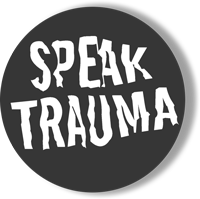Explaining Trauma
Q & A with Dr Ottilia Brown

Trauma takes many shapes and forms, one of our organizations mission is to help individuals and communities heal from trauma through story telling. In order to really dissect the matter, we speak to clinical psychologist Dr.Ottilia Brown at the Lighthouse Arabia based in Dubai.
Q: How would you explain trauma?
Trauma is essentially the response to a single event or a series of events that the individual experiences as distressing and emotionally significant. Trauma typically results in feelings of helplessness as the individual’s coping response is inadequate for the nature of the trauma.
Q : Can you explain some of these events?
Events commonly associated with the word ‘trauma’ include war, physical and sexual abuse, violence, major accidents and so forth. These events are usually referred to as ‘Big T’s’ as they are catastrophic by their very nature and can be life-threatening and/or violate a person’s bodily integrity. However, smaller less catastrophic events can also be deemed trauma. These are usually referred to as ‘little t’s’ and can include interpersonal conflict, financial difficulties, shelter and food insecurity, divorce and so forth. It is their accumulation and the resulting emotional pile-up that exceeds coping ability which results in them being experienced as traumatic.
Q : I feel that different people react differently to certain incidents – would that be the case here.
Trauma is largely a subjective experience, and something which is traumatic for one person may not be so for another. A number of factors including distress tolerance, ability to emotionally self-regulate, coping resources, and appropriate social support can mitigate whether something is experienced as traumatic. Trauma, and the emotions related to trauma, are stored in our bodies.
Q : When you say, stored in our bodies – it means that in a way they are embedded in our memory right?
When we have experienced trauma, we are sensitive to triggers which can elicit a fight or flight response. These triggers are individual to the person and the trauma experienced and can be absolutely anything from a smell, music, people or places, to hearing a name or watching a movie scene.
Q : Does the same apply to children as well?
Childhood trauma can lead to the adoption of coping strategies like repressing emotion, pretending, minimizing trauma, and people pleasing. These coping mechanisms often aided survival in childhood but no longer serve us as adults.
We will continue our discussion about the impacts of trauma and how to heal from it in our next post with Dr. Ottilia Brown who explains what untreated trauma can do and how we can heal from it.

Dr. Ottilia Brown

Trackbacks/Pingbacks